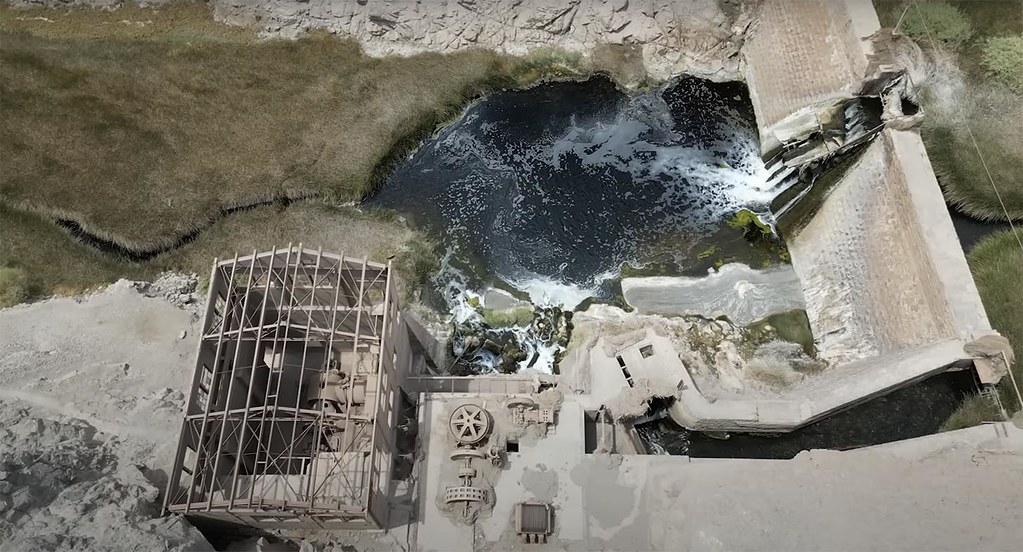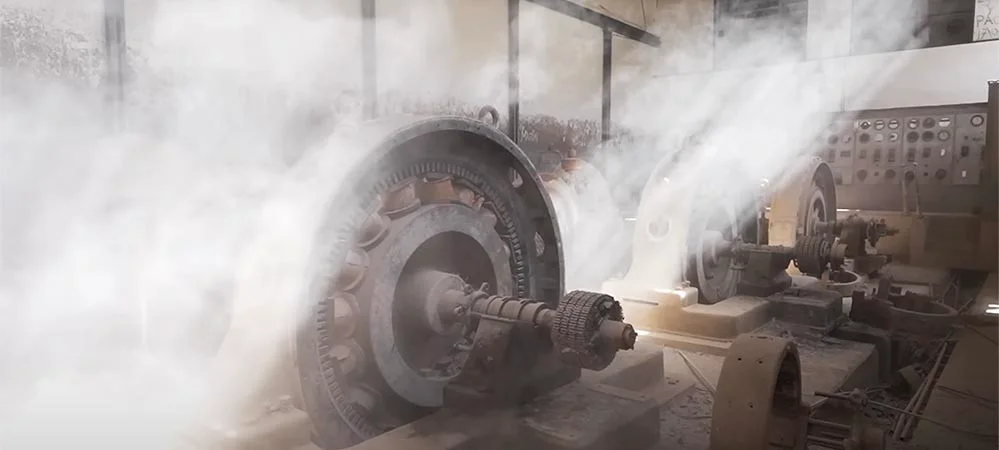
A tour of two abandoned hydroelectric plants in the Atacama Desert | Travel News
The vast Atacama Desert in Chile is recognized as the world's driest place, excluding the polar regions.
In this arid region, there are a few low-flowing rivers that served as the foundation for building hydroelectric plants connected to the saltpeter industry, which was crucial to Chile in the late 19th and early 20th centuries. "Exploring the Unbeaten Path" has visited two of these now-abandoned power plants.
The first plant was constructed in 1905, began operation in 1911, and ceased activity in 1956. It is now designated as a historical monument. The second plant was built in 1898 and stopped functioning in 1929. Unfortunately, due to the lack of surveillance and many years of abandonment, many of its components have been looted. Despite this, they remain fascinating relics of an important industrial past in the middle of the desert.
Below are some screenshots from this video. Let me begin with a detail I particularly enjoyed: the stunning northern sky of the Atacama Desert, offering a crystal-clear view of the Milky Way. Thanks to its arid climate, this location is one of the best in the world for stargazing. In fact, the Atacama Desert is home to the world's largest astronomical project, the Atacama Large Millimeter/submillimeter Array (ALMA).
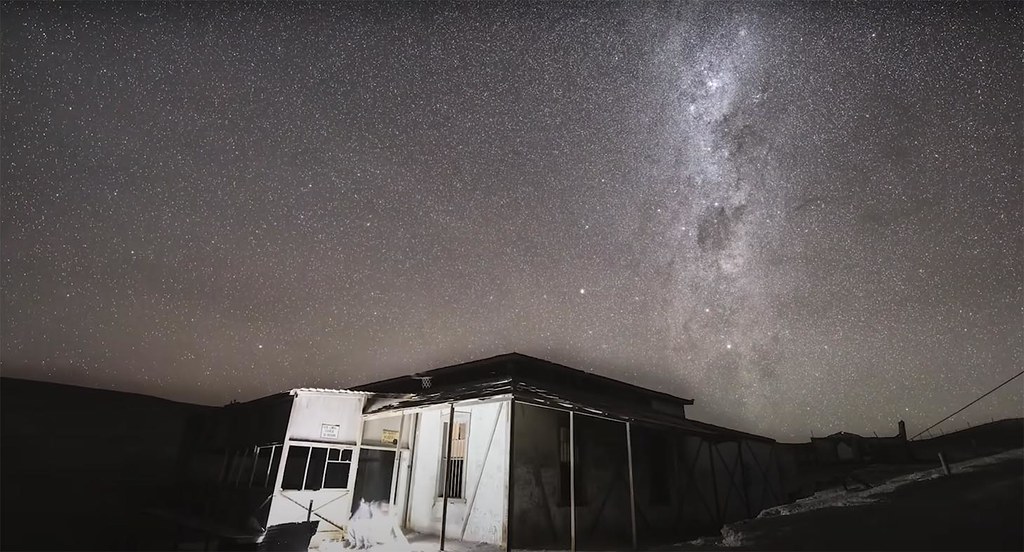
The first power plant featured in the video was constructed in 1905. Its reservoir remains intact to this day.
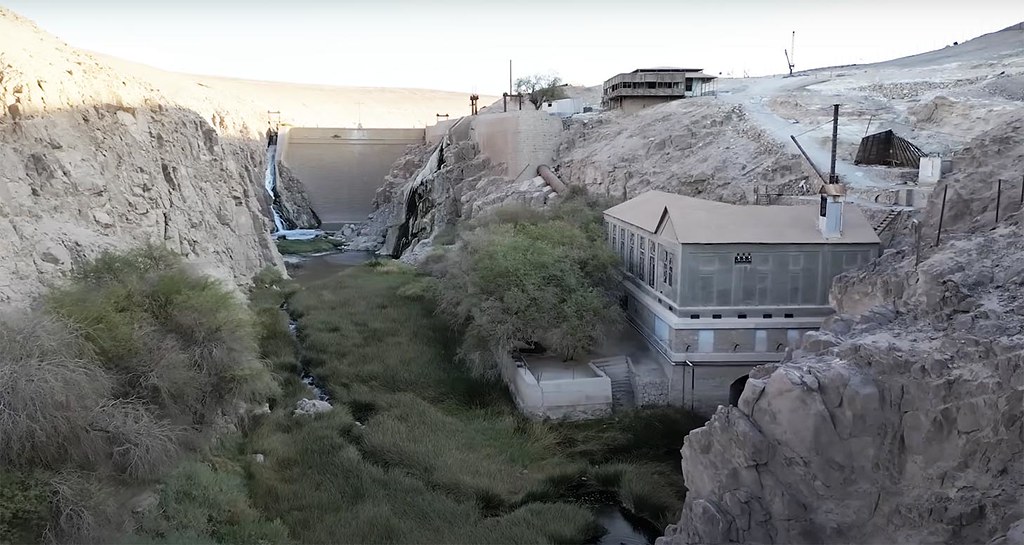
The three 500 HP Voith turbines at this power station in Heidenheim, despite being abandoned and subjected to vandalism and looting, still appear impressive.
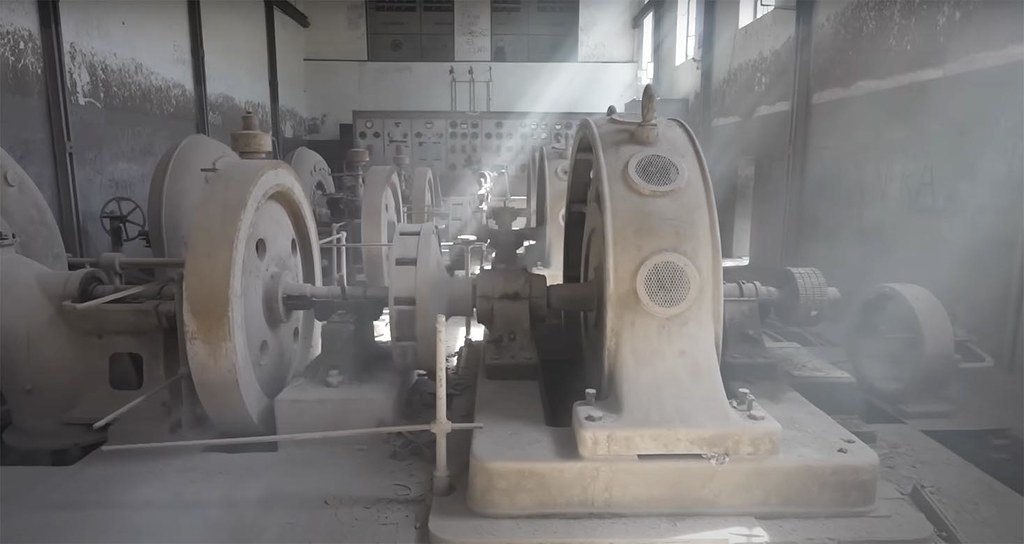
The second power plant, constructed in 1898, had two turbines, and its reservoir remains intact.
